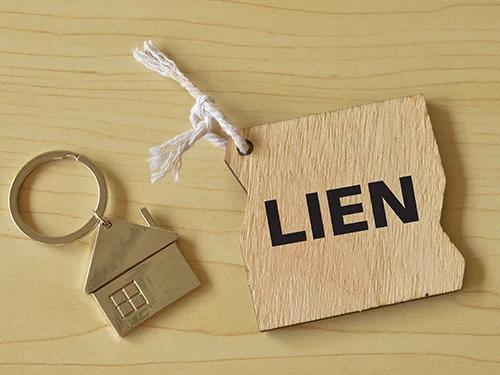What Is a Lien on a House?


Banks primarily use liens as a means of guaranteeing the loans they make; this is a common practice in the real estate world. The creditor can secure himself by requesting the sale of the property when they cannot recover his receivables. So what is a lien on a house, what is the lien definition, and what are the basic features of a lien? You can find the details in this article.

What Is a House Lien?
A house lien alludes to using collateral to secure a property. A lien on a house is typically associated with bank loans. For instance, a bank will use the lien on a piece of real estate as security for any loan it grants. Therefore, if a debt remains unpaid in the future, it will be collected from the proceeds of the sale of the real estate under a lien. Any property owned by a third party may be put under a lien as collateral with that person's permission. A lien transaction is legal. Thus, the creditor and the debtor must sign a legal lien agreement. The parties decide on the debt, the time frame for repayment, and the specifics of the real estate pledged as collateral within the parameters of the lien agreement.
Lien Meaning: What Are the Characteristics of a Lien?
Now that we've established the lien meaning let's look into the details of a house lien. The land registry office must have a record of the property that will be the subject of a lien. Only real estate not listed in the land registry may have a lien established against it. The assets of other people who consent can also be subject to a lien; the lien doesn't need to be imposed solely on the debtor's assets. For instance, a parent could set up a lien on his own property to pay off his son's debt. If the son is unable to settle the obligation, the creditor may ask for the sale of the father's home.
In situations with a risk of delay, and no action is done to prevent the value of the real estate under a lien from declining, the creditor may take action on his own initiative. For instance, the creditor could ask the debtor to obtain fire insurance for the encumbered property, and if the debtor refuses, the creditor could file for court. Or, he can undertake the strengthening work himself if the real estate's columns are significantly compromised. The debtor may be required to pay the creditor's incurred costs. Registering a separate lien for these expenses is not mandatory, as the creditor will have a claim on the encumbered real estate.
Only Turkish Lira can be used to establish a lien. This is why inflation and interest rate projections should be considered when determining the lien amount. It should be noted that lien costs may be charged in foreign currencies for loans made by banks or other credit organizations. A real estate's stakeholders may lien their own shares if multiple people own it, and the proportion of those shares is listed in the land registry. However, in situations where no rate is specified in the title deed (shared ownership, as in inherited real estate), establishing a lien will require the consent of all owners. One receivable may be secured by a lien on many properties, or multiple real estate properties may be secured by a single property.
How to Get a Lien off Your House
- The principal debt's expiration
- Creditor's release of the debtor from obligation
- Turning the lien into cash
- Expiration of the time set for the lien
- Expropriation
- Destruction of the property
- Court directive
Contact our experts here at Nest Invest for more details of lien procedures in Turkey.










